Speaker: dr Marta Hoffman-Sommer (Interdyscyplinarne Centrum Modelowania Matematycznego i Komputerowego Uniwersytetu Warszawskiego, Platforma Otwartej Nauki)
Talk: Otwarty dostęp do publikacji i danych naukowych
Time: 21 April 2017, 9.15am
Venue: Intercollegiate Faculty of Biotechnology, Abrahama 58
Category: Faculty seminar
Po wykładzie dyskusja panelowa z udziałem zaproszonych gości. Planowany czas trwania (9.15-11.00).
http://biotech.ug.edu.pl/media/aktualnosci/65077/otwarta_nauka_szanse_-_wyzwania_-_kierunki
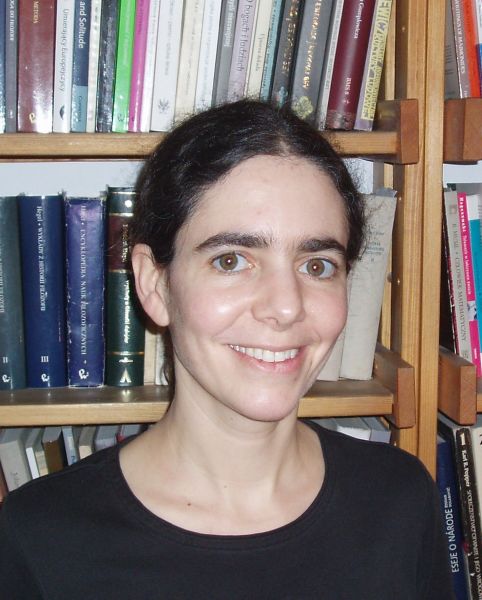
Marta Hoffman-Sommer jest absolwentką Międzywydziałowych Indywidualnych Studiów Matematyczno-Przyrodniczych na Uniwersytecie Warszawskim. Stopień doktora nauk biochemicznych (2007) uzyskała w Instytucie Biochemii i Biofizyki PAN w Warszawie na podstawie badań nad transportem wewnątrzkomórkowym u drożdży. Staż podoktorski odbyła na Uniwersytecie Humboldtów w Berlinie (2010-2012) w dziedzinie modelowania matematycznego w biologii. Od roku 2012 pracuje w Interdyscyplinarnym Centrum Modelowania Matematycznego i Komputerowego Uniwersytetu Warszawskiego, gdzie w ramach Platformy Otwartej Nauki zajmuje się kwestiami dotyczącymi otwartej nauki, otwartych danych badawczych i zarządzania danymi, koordynuje ogólnopolskie Repozytorium Otwartych Danych RepOD i reprezentuje Krajowe Biuro Otwartego Dostępu projektu OpenAIRE.
Speaker: dr Marcin Dembek (Institute for Cell and Molecular Biosciences, Newcastle University, UK)
Talk: Forward genetic studies of gene essentiality and sporulation in Clostridium difficile
Time: 24 March 2017, 9am
Venue: Intercollegiate Faculty of Biotechnology, Abrahama 58
Category: Faculty seminar
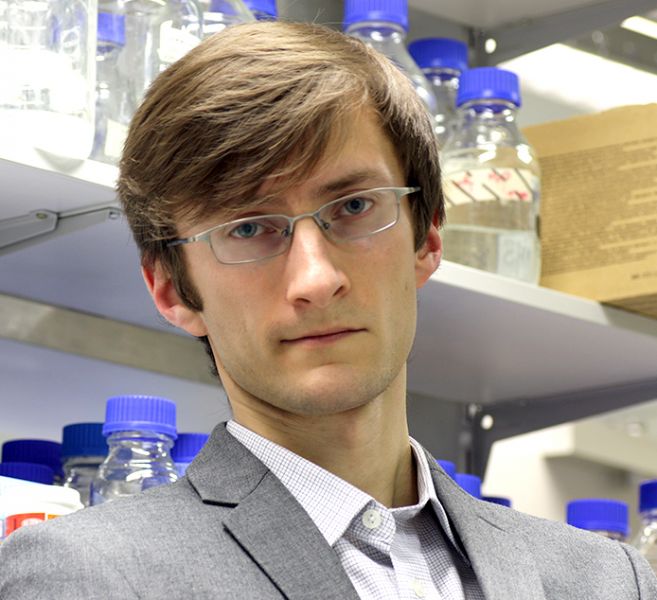
Marcin Dembek obtained his master’s degree in 2009 at the Intercollegiate Faculty of Biotechnology UG-MUG while studying the potential application of B. subtilis spores as an antigen delivery platform for use in the development of an oral vaccine against Helicobacter pylori. He went on to secure a Wellcome Trust PhD scholarship at Imperial College London to develop genome-wide approaches to studying sporulation and germination in Clostridium difficile. In 2013, he took up a post-doctoral position at the Jenner Institute, University of Oxford to work on the development of novel vaccine candidates against malaria before being offered a research associate position in Dr. Paula Salgado’s lab at Newcastle University where he studies the structure and function of potential drug targets in C. difficile. His current work is primarily aimed at understanding the organisation of the ‘molecular machinery’ involved in the engulfment stage of sporulation.
Dr Dembek is a member of the Microbiology Society and an active part of the Polish scientific community in the UK. In 2014, he co-founded Getty Science, an online publication platform aimed at researcher who wish to share their work through creative writing and illustration, as part of a close collaboration with the annual ‘Science. Polish Perspectives’ meeting.
| Załącznik | Wielkość |
|---|---|
| 547.68 KB |
Speaker: dr Michał Szymański
Talk: Structural basis of DNA replication and repair in human mitochondria
Time: 13 January 2017, 10am
Venue: Intercollegiate Faculty of Biotechnology, Abrahama 58
Category: Faculty seminar
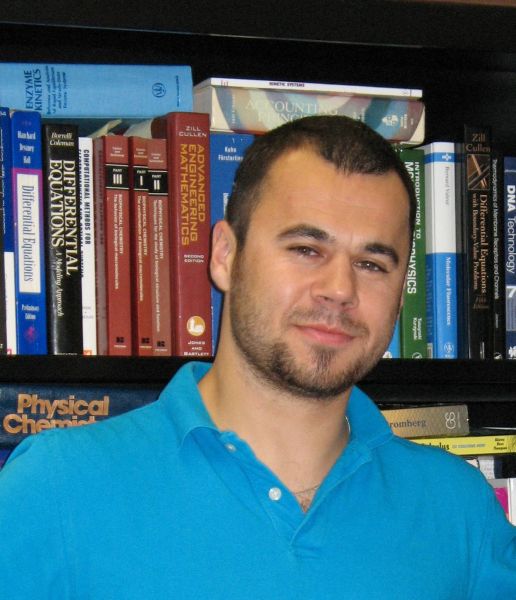
Speaker: prof. dr hab. Marta Miączyńska (Międzynarodowy Instytut Biologii Molekularnej i Komórkowej w Warszawie)
Talk: Inflammatory signalling from the endocytic pathway
Time: 20 January 2017
Venue: Intercollegiate Faculty of Biotechnology, Abrahama 58
Category: Faculty seminar
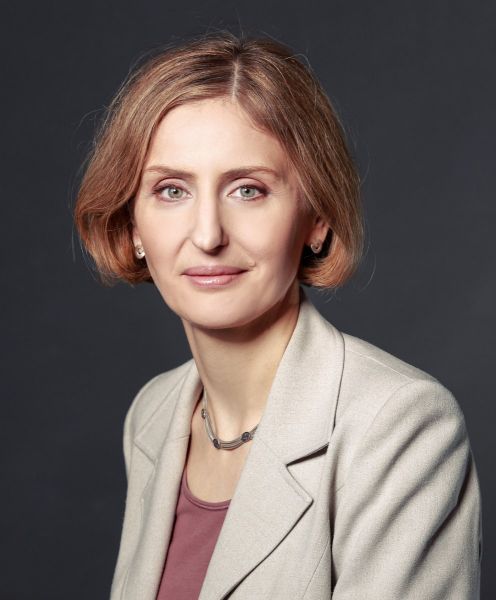 Absolwentka Uniwersytetu Jagiellońskiego (kierunek biologia molekularna, 1992), uzyskała stopień doktora w dziedzinie genetyki na Uniwersytecie Wiedeńskim w 1997 roku. Odbyła staże podoktorskie w Europejskim Laboratorium Biologii Molekularnej w Heidelbergu (1998-2000) oraz w Instytucie Maxa Plancka Molekularnej Biologii Komórki i Genetyki w Dreźnie (2001-2004). Od roku 2005 kierownik Laboratorium Biologii Komórki w Międzynarodowym Instytucie Biologii Molekularnej i Komórkowej w Warszawie. Stopień doktora habilitowanego uzyskała w roku 2008, a tytuł profesora w 2013.
Absolwentka Uniwersytetu Jagiellońskiego (kierunek biologia molekularna, 1992), uzyskała stopień doktora w dziedzinie genetyki na Uniwersytecie Wiedeńskim w 1997 roku. Odbyła staże podoktorskie w Europejskim Laboratorium Biologii Molekularnej w Heidelbergu (1998-2000) oraz w Instytucie Maxa Plancka Molekularnej Biologii Komórki i Genetyki w Dreźnie (2001-2004). Od roku 2005 kierownik Laboratorium Biologii Komórki w Międzynarodowym Instytucie Biologii Molekularnej i Komórkowej w Warszawie. Stopień doktora habilitowanego uzyskała w roku 2008, a tytuł profesora w 2013.
Jej badania z dziedziny biologii komórki dotyczą mechanizmów molekularnych, które integrują transport błonowy, w szczególności endocytozę, z wewnątrzkomórkowymi szlakami sygnalizacyjnymi. Odkryła m. in. odrębną populację wczesnych endosomów w komórce, tzw. endosomy APPL. Wraz ze swoim zespołem scharakteryzowała nowe funkcje białek endocytarnych w regulacji przekazywania sygnałów oraz transkrypcji, a także rolę endosomów jako platform sygnałowych dla receptorów czynników wzrostu i cytokin.
Współautorka ponad 40 publikacji cytowanych ponad 2100 razy. Wygłosiła kilkadziesiąt referatów i wykładów na zaproszenie na międzynarodowych konferencjach oraz w zagranicznych instytucjach naukowych. Laureatka stypendiów Austrian Science Fund (FWF), Human Frontier Science Program Organization (HFSPO) oraz L’Oreal Polska dla Kobiet i Nauki. Laureatka prestiżowych grantów zagranicznych: Wellcome Trust International Senior Research Fellowship (2006-2012) oraz Howard Hughes Medical Institute International Research Scholar (2006-2010). Kierowniczka grantów finansowanych przez Polsko-Szwajcarski Program Badawczy, Narodowe Centrum Nauki (grant MAESTRO), Unię Europejską, Towarzystwo Maxa Plancka i Ministerstwo Nauki i Szkolnictwa Wyższego. Panelistka m. in. European Research Council (LS3 starting grants), Agence Nationale de la Recherche (ANR) z Francji, Deutsche Forschungsgemeinschaft (DFG) z Niemiec. Członek Komitetu Biologii Molekularnej Komórki PAN. Promotorka 7 zakończonych przewodów doktorskich.
Speaker: dr hab. Mieczyslaw (Mietek) Mazurek
Talk: Culture of Innovation; Practitioner’s Perspective
Time: 13 January 2017, 9.00 a.m.
Venue: Intercollegiate Faculty of Biotechnology, Abrahama 58
Category: Faculty seminar
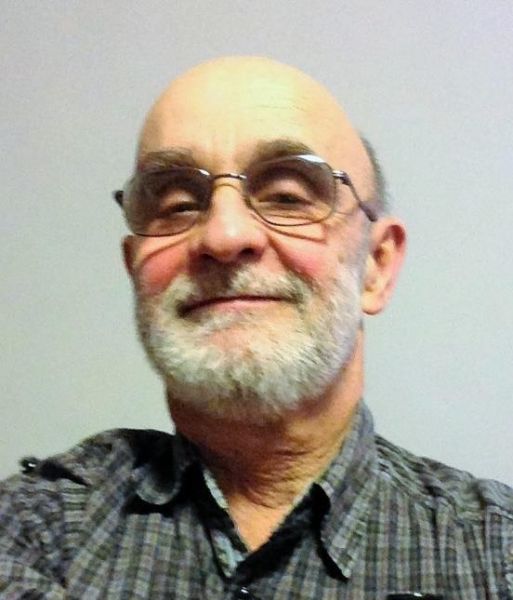
Culture of Innovation; Practitioner’s Perspective - What is true in science: “publish or perish”, in the market place translates into: “innovate or die”. Innovation is one of the key tools necessary to win in the competitive economies; innovation not only in technology, but also in processes and business models. This seminar will combine some examples and general remarks from literature regarding the subject matter with examples and observations of a researcher immersed in the creative environment of one of the most innovative global enterprises – 3M Company. A need for “systems thinking” in designing and implementing truly innovative solutions will be emphasized.
| Załącznik | Wielkość |
|---|---|
| 150.25 KB |
Speaker: Prof. Robin Fahraeus (Inserm, Universit Paris)
Talk: Linking viral immune evasion with cell proliferation - Epstein-Barr virus encoded EBNA1
Time: 7 October 2016
Venue: Intercollegiate Faculty of Biotechnology, Abrahama 58
Category: Faculty seminar
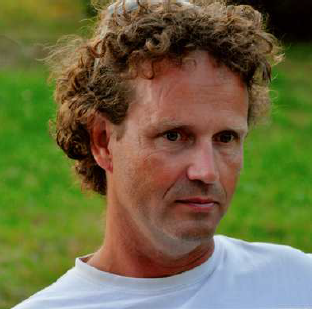
Prof. Robin Fahraeus is Director of Research at the French Inserm. His team is located at the Institute Genetique Moleculair in Paris. He is member of the French Cancer Institute, the Mazaryk Cancer Institute in Brno, Czech Republic and Umea University, Sweden. He did his M.D. and PhD at the Karolinska Institute in Stockholm, Sweden in 1993. This was followed by a post doc training with Sir David Lane in Dundee, UK. He was Head of R&D at the Cyclacel Biotech Ltd before setting up his own academic research group with support from the Cancer Research UK. In 2004 he moved to France to become Research Director and work on physiological implications of mRNA translation in the p53 and the MHC class I pathways. The team has explored viral mechanisms of immune evasion and how this is linked to alternative sources of peptides for the MHC class I pathway. Works on the activation of p53 have shown how signaling pathways use the p53 mRNA to differentiate p53 activity following different cellular stresses. Dr Fahraeus team is currently world leading group in the studies on the source of MHC class I presented peptides. Their work contributed to understanding fundamental aspects of the processes allowing the immune system to detect self from non-self and for viral evasion of the immune system. The aim of their present research is to identify and evaluate intracellular targets for novel anti-cancer therapies. Dr Fahraeus is the author of over 80 publications in leading scientific journals, including Science, Nature, Nature Communications, PNAS, Oncogene and others.
Speaker: Prof. dr hab. Zofii Szweykowska-Kulińska (Uniwersytet Adama Mickiewicza Poznań)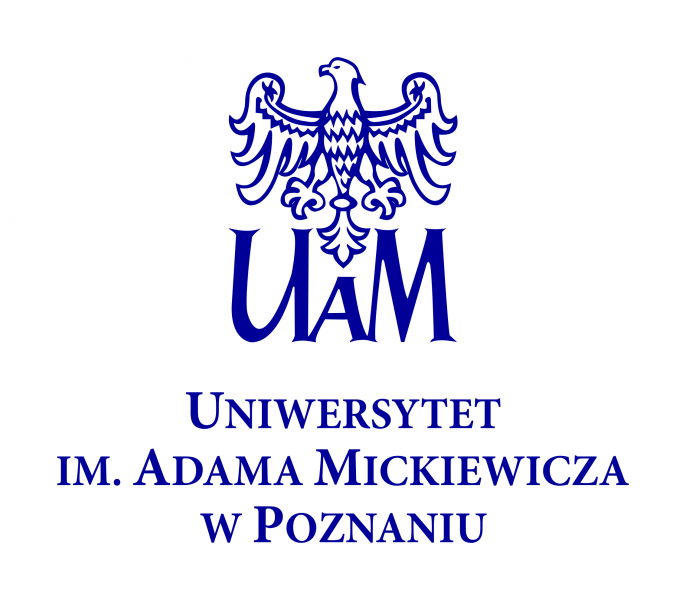
Talk: Składanie pre-mRNA - molekularna gra w Scrabble
Time: 5 October 2016, 12:00
Venue: Intercollegiate Faculty of Biotechnology, Abrahama 58, Aula
Category: Invited Lecture, Inauguration of the academic year
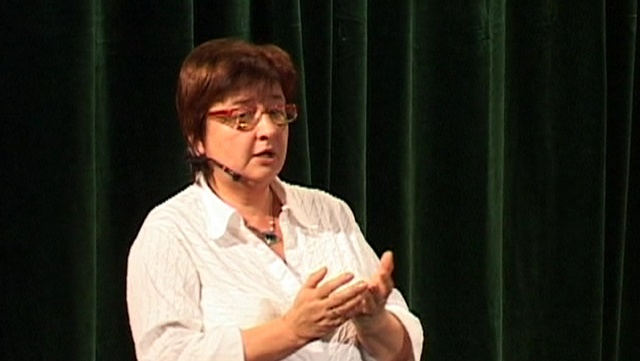
Serdecznie zapraszamy na wykład Prof. dr hab. Zofii Szweykowskiej-Kulińskiej z Uniwersytetu Adama Mickiewicza w Poznaniu "Składanie pre-mRNA – molekularna gra w Scrabble". Wykład uhonoruje tegoroczną inaugurację roku akademickiego, która odbędzie 5 pażdziernika o 1200 w Auli na MWB, Instytut Biotechnologii Abrahama 58.
Tytuł magistra: 1980 biologii, UAM Stopień doktora nauk biologicznych: 1986, UAM Stopień doktora habilitowanego nauk biologicznych: 1995, UAM Tytuł profesora nauk biologicznych: 2001, UAM
Postdok: stypendium Aleksandra von Humboldta: 1988-1990, Uniwersytet w Wuerzburgu, Niemcy Stypendium EMBO, 1993, CNRS, Gif-sur Yvette, Francja
Kierownik Zakładu Ekspresji Genów (od 1996) Dyrektor Instytutu Biologii Molekularnej i Biotechnologii (od 2000) na Wydziale Biologii UAM Blisko 70 prac widocznych w WoS
Tematyka: Badania dotyczą metabolizmu RNA, obecnie koncentrują się nad splicingiem i biogenezą i funkcjami mikroRNA roślin. Najważniejsze odkrycia: (1) odkryła wraz ze współpracownikami, że geny mikroRNA są długie i zawierają introny. (2) Intron lub aktywne miejsce 5’ splicingowe stymuluje biogenezę roślinnych mikroRNA obecnych w egzonie powyżej intronu, natomiast w przypadku intronowych mikroRNA jest odwrotnie: wydajny splicing i aktywne miejsce 5’ splicingowe hamują biogenezę mikroRNA . (3) Wyciszenie z pomocą sztucznego mikroRNA genu CBP80 ziemniaka zwiększa tolerancję rośliny na okresowy niedobór wody. (4) Zahamowanie krzewienia jęczmienia w stresie wysokiej temperatury jest związane z indukcją mikroRNA 444. (5) W wątrobowcu P.endiviifolia odkryto obecność kilku mikroRNA podobnych do mikroRNA glonów. Fakt ten wskazuje, że rośliny te lokują się u korzenia drzewa filogenetycznego roślin lądowych.
Speaker: Marcin Okrój, PhD
Talk: Role of the complement system in cancer progression and therapy.
Time: 26 February 2016, 9.00
Venue: Intercollegiate Faculty of Biotechnology, Abrahama 58
Category: Faculty seminar
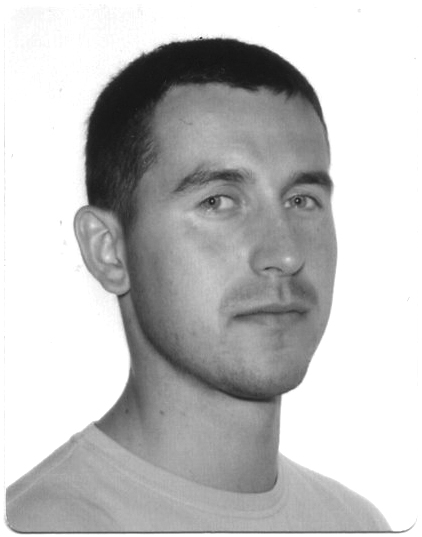 Marcin Okrój obtained his master degree at the Intercollegiate Faculty of Biotechnology UG-AMG (Gdańsk, Poland) in 1999, then continued his scientific career at the same place as a PhD student under the supervision of prof. Jacek Bigda. He participated in two projects granted by Polish State Commitee for Scientific Research (KBN), which involved the role of cell adhesion as well as antiangiogenic compound TNP-470 in growth of rodent melanomas. Irrespectively of the main scientific activity, he was also involved in several side-projects concerning antimicrobial peptides. In 2003, as a beneficient of Marie-Curie Program, he obtained 6-month training at the Free University of Amsterdam (Amsterdam, The Netherlands) and finally defended his PhD thesis in 2004.
Marcin Okrój obtained his master degree at the Intercollegiate Faculty of Biotechnology UG-AMG (Gdańsk, Poland) in 1999, then continued his scientific career at the same place as a PhD student under the supervision of prof. Jacek Bigda. He participated in two projects granted by Polish State Commitee for Scientific Research (KBN), which involved the role of cell adhesion as well as antiangiogenic compound TNP-470 in growth of rodent melanomas. Irrespectively of the main scientific activity, he was also involved in several side-projects concerning antimicrobial peptides. In 2003, as a beneficient of Marie-Curie Program, he obtained 6-month training at the Free University of Amsterdam (Amsterdam, The Netherlands) and finally defended his PhD thesis in 2004.
After working for 1 year at Pasteur Institute (Paris, France), Dr Okrój joined the team of prof. Anna Blom at Lund University (Malmö, Sweden), which was engaged into innate immunity and especially the complement system. In 2010 he obtained support from Swedish Research Council (Vetenskapsrådet) and initiated an independent line of research focused on the role of complement in tumor progression, identification of novel complement inhibitors and design of new immunological methods.
Currently Dr Okrój is a principal investigator within two projects funded by National Science Centre (NCN, Poland): i) ¨Role of the complement system in tumorigenesis and therapeutic approaches.¨ (Sonata Bis) and ii) ¨Functional characteristics and therapeutic potential of gain-of-function mutations in complement C2 protein.¨ (Harmonia). He is the author of 30 peer-reviewed publications and named as inventor in one patent. Dr Okrój is a member of International Complement Society, European Complement Network and research program Biomarkers in Cancer Medicine (BioCare).
| Załącznik | Wielkość |
|---|---|
| 93.31 KB |
Speaker: Danuta Gutowska-Owsiak, PhD
Talk: Filaggrin utilize actins to regulate keratinocyte differentiation and cornification during epidermal barrier formation
Time: 22 January 2016, 9:00
Venue: Intercollegiate Faculty of Biotechnology, Kładki 24, lecture hall B
Category: Invited Seminar
| Załącznik | Wielkość |
|---|---|
| 76.18 KB | |
| 102.42 KB |